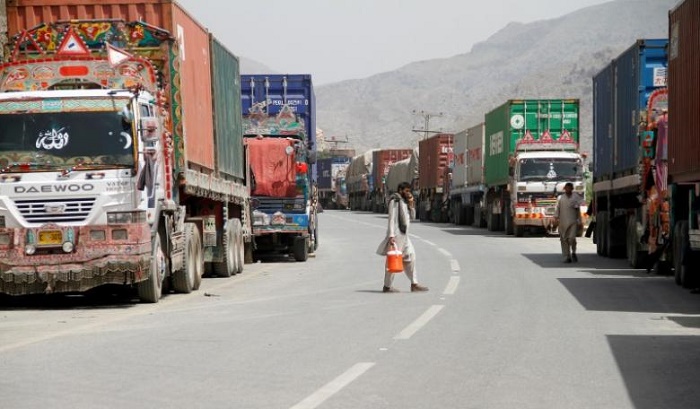Alwaght- If at first glance we seek a link between the escalation of tensions between Kabul and Islamabad and a rise in the opium production in Afghanistan, we may fail to do so, but the fact is that the increase in tensions between these two neighbors has led to growth of opium cultivation and thus drugs production and smuggling in Afghanistan.
Afghanistan-Pakistan relations were not strained when Ashraf Ghani became president of Afghanistan. Even the Afghan president less than two months after taking the office paid a visit to Pakistan, displaying an intention to establish warm relations with Afghanistan's southern neighbor. However, increase in Taliban movements in Afghanistan under President Ghani did not allow the two countries' warm relations to last long. In mid-2016, the first signs of escalation in the two sides' relations showed face.
At that time, the Afghan leader accused Islamabad of supporting the terrorist groups active in Afghanistan, asserting that he could no longer bear further killing of the Afghan civilians by Pakistan-backed militant groups. Additional friction even led to closure of the two nations' common border crossing in Torkham border area. In fact, the rising stress in Islamabad and Kabul ties even affected the economy. During 2016 and following encounters between the two countries' armies, Pakistan not only several times blocked the Torkham border crossing in the face of the Afghan businessmen, but also in June the same year it announced that it will establish new border outposts along its borders with Afghanistan.
Torkham border crossing is one of the key trade routes in eastern Afghanistan, and the passengers and products are moving between Afghanistan and Pakistan majorly from this crossing. It is apparent that political escalation between Kabul and Islamabad, which led to closure of the crucial Torkham trade terminal, has taken a toll on the economic sector. Actually, from now on, the businessmen should expect further economic repercussions originating from tense ties between Afghanistan and Pakistan.
On the other side, in recent years Afghanistan has persistently attempted to boost its fruit exports as an alternative to its drugs smuggling to other countries which is a key source of income of Taliban group. But border rifts with Pakistan several times stood as hurdle ahead of the Kabul efforts to improve fruit exports.
Afghanistan is an agricultural nation, with nearly 80 percent of its population are farmers. Both fresh and dried fruits are the major export items of Afghanistan. But even these exports are not going out of the country due to improper business conditions. In such a situation, and amid escalation in the two neighbors' tensions, the Afghan farmers resort to opium production.
The AFP news agency has reported that frequent blockades of transit route between Afghanistan and Pakistan by Islamabad to the traders have led to slowed down business activities and exporting of such fruits as pomegranate and grape from Afghanistan. Afghanistan reportedly produces over 73 types of grape at home.
The French news outlet also added that long lines of Afghanistan fruit trucks stuck at the border route with Pakistan cause serious harms to quality of the exported products and thus to the economy of the Afghan exporters. This, in turn, pushes the Afghans to once again seek opium production in the country.
According to the figures published in Afghanistan in 2015, the Afghan businessmen exported nearly 52,000 tons of pomegranate to Pakistan, the UAE, and India, but in 2016, the pomegranate exports dropped to 15,000. The tensions between Pakistan and Afghanistan exactly in this year saw an unprecedented surge.
“We prepared ourselves to export about 40,000 tons of grape from Kandahar to Pakistan but this country( Pakistan) closed the border for 17 days in October, preventing our fruit from crossing the border,” Nasrallah Zaher, the head of Kandahar Chamber of Trade, has maintained.
The UN official statistics suggest a 10 percent rise in opium cultivation in Afghanistan in 2016, the highest Afghan opium production growth rate in 22 years. This rise is said to be supported by a growing escalation between the two Central Asian nations.
In such conditions, it appears that the political officials on the both sides of Torkham border need to ease tensions if they seek a reduction in the drugs production and smuggling from their borders. If they allow their tense ties go on, the economic instability will be the outcome, which means the way will be paved for expansion of opium production and its smuggling across the region.



























